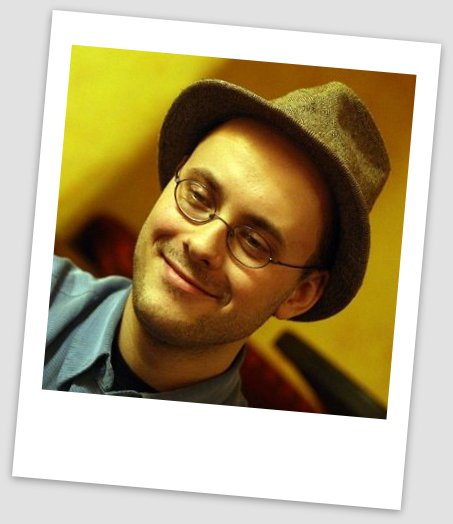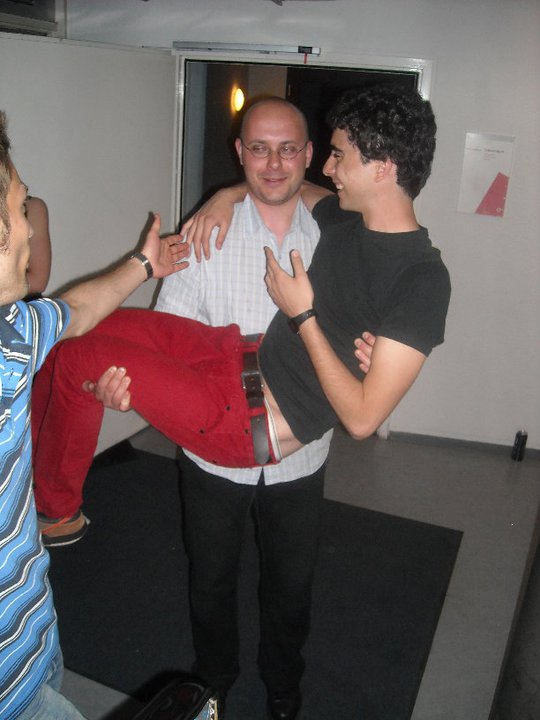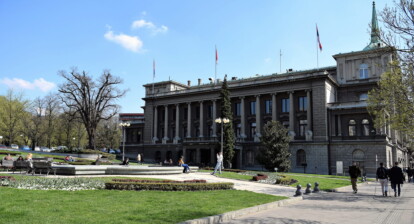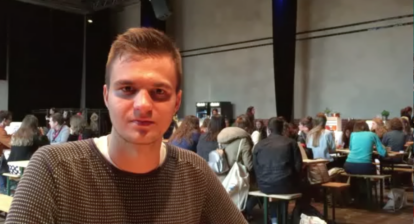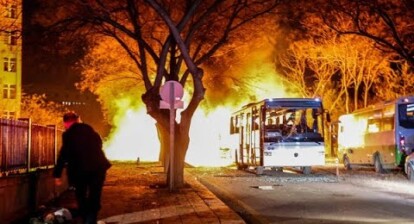Name: Michał
Age: 27
Hometown: Grudziądz/Gdynia/Warszawa
Country: Poland
EUSTORY experiences: EUSTORY Summer Academy Berlin 2005, EUSTORY Alumni Project Berlin-Hamburg “Remembering Protest, Resistance, Civil Disobedience” 2006-2007, EUSTORY Alumni Project Berlin “25 years after Chernobyl” 2010-2011
Actual occupation/studies: Historian and journalist
Today’s world retains a complexity which is difficult to understand, one which is constituted by its past, by both its shadows and bright spots. Remembering those moments is thus essential to capture today and tomorrow. Catalysts of remembrance are those who make sure that the past is not an empty sheet, but try to present the facts of the past as a coherent story: historians. However, historians are so much more than simple keepers of the past, as Michał Przeperski, professional historian and journalist, EUSTORY alumnus and the interviewee of today, clearly states: “History is about understanding and thinking, not only about knowing facts.”
The first thing that strikes people about Michał is his undying fondness and monumental passion for the historical studies, a devotion he also doesn’t hide when being asked for the reasons of his choice for the subject: “I simply can’t imagine myself doing something that would not be connected to history. There is hardly any other more rational answer I can give anyone, really”. This permanent love for history explains his interest in such a wide spectrum of historical subjects, from ancient Egypt to Mohenjo-daro and even Bolivia in 1930s, since history in his eyes is a “total thing”. However, the crème de la crème of his interest lies within the modern and contemporary history, mostly within the 20th century. He’s mainly specialized in the history of communist Poland and communism in general, and also wrote articles on the 19th century Czech Lands, interwar Romania and the theoretical problems of fascism. Apart from that, he’s very much interested in the history of the Balkan peninsula (especially Yugoslavia and Serbia) and Hungary. His PhD is to be about Mieczysław Rakowski, an influential Polish politician that made an impressive career as a party intellectual in communist Poland. Despite his own passion, Michał is quite pessimistic and concerned about the future of history and the position it will have in the society of the future. The “multi-medialisation” of history is not helping, nor is the shift of focus. “The importance of history is diminishing day by day. At the same time, we should be all afraid of this fact,” Michał says. Surely, the reasons for this tendency are various and difficult to explain, but the lack of independent thinking and understanding in historical education is definitely an important factor. “Which is such a pity,” according to Michał, “because without those two, there is no history.” Consequently, history projects like EUSTORY, “the network of people who feel a intellectual sense of belonging to Europe, although they are well aware of the differences within the boundaries of one continent”, and exchange programs like Erasmus, which stimulate such independent reflection, mean lot to him. Both played a significant role in his personal development on multiple stages. Firstly, it made him think differently about Europe and the European Union, as he is now convinced that Europe is way more valuable than the EU. The latter is a very complicated administrative enterprise, which should be reconstructed in order to fulfill the expectations of the people of Europe, but unfortunately, sometimes the “political correctness” serves as a tool for putting down the discussion about changes. Secondly, and more crucially, EUSTORY further induced him to pursue his future career as a professional historian, as such a competition contains all the elements of the historical craftsmanship. As a result, EUSTORY was actually decisive in his future decision to take up the historical studies and dropping law, which he studied simultaneously before. Thus, Michał expresses his sincere hope that more young people will participate in these projects and be touched by them as “a great way of getting out of the box, as one of the best schools of communication, and as a useful learning experience for writing and talking about things one self knows very well, but which are unknown to the others.”
Furthermore, he looks forward to seeing more diverse EUSTORY projects over the years – alumni projects, summer academies, but also remembrance projects, since remembrance is in his eyes a crucial way of interaction between reality and historical theory – and wishes to see them cover topics such as the discussion about national features and the priority of either economy or culture. The choice of these topics coincide with his statement that EUSTORY is not only about history, “but it contains also a bit of social sciences, important general reflections on the modern society and its functioning in the organized programs.”
He believes that letting youngsters in these projects understand that they should think on their own, that everyone has to find their own way and their own reasons to understand the importance of history, is the most crucial point. EUSTORY is certainly doing its best to accomplish this goal. Nevertheless, he thinks that too much attention is paid to the European Union and its history as an institution, and too few information is given about the national histories of the countries and nations of Europe. He proceeds to giving the following suiting example to state his case: “as a professional historian, I (at least partially) understand the roots of resentment between Hungary and Romania. But how is someone who’s less interested in history, e.g. from Denmark, able to know about this? Don’t get me wrong: I am not trying to say that the EU and its history should not be discussed at all. But please, understand that the history did not start in 1952 or 1957. Or, in the Polish case, in 2004.”
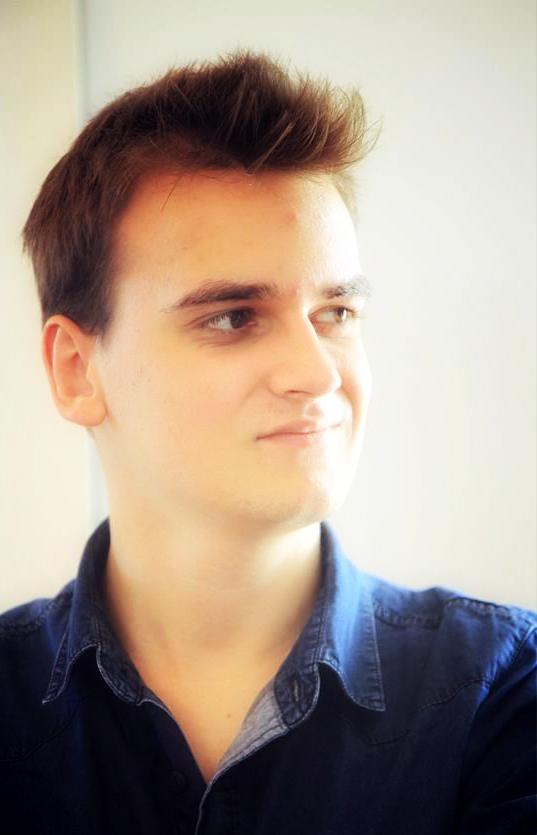
Interviewer: Roman from Belgium
So does this mean he opposes the idea of a unified Europe? No, certainly not. Although he has some problems with the exact understanding of the concept, Michał thinks that the idea of a unified Europe is still valid nowadays. Even more, according to him, it always will be. But as said, the concept is still a bit shaky. Should Europe be a continent of ideally equal countries? Or should there be some kind of hegemony of one country? What is the most important thing about Europe – values, culture, economy? “I would totally go for the concept of united Europe, yet what I actually see doesn’t quite fit my ideal,” he assured me. This being said, the idea of a common European history might not be even as valid. “Given the fact that history has been reinvented as a scientific and educational tool to strengthen national countries (and identities) in 19th century,” he says, “I don’t believe that a “common European history” in a political way is possible. And, to be honest, it is not needed. In my opinion, Gleichschaltung of the historical narrations would be a harmful outcome of the operation of writing a common European history.” If such a common history would be sought in social history, in the history of emotions, sexuality etc. however, Michał thinks it possible to create a narration with a postmodernist methodology that can capture a history of Europe.
The previous statements also explain why he’s quite skeptical towards a monument creating tradition for the EU, such as e.g. the “House of European History” in Brussels, since those are mostly politically aimed. “I read the book by Éli Barnavi and Krzysztof Pomian, two historians involved in this undertaking, and I must admit that the arguments used in the book were not convincing to me. The emotional appeal of the first election of the European Parliament in 1979 will never be considered more importantly in Poland than our elections of June 1989. Thus I felt a sense of artificiality in the tradition represented by this “House of European History”. Hence, I am skeptical about such undertakings. Yet, I would like to put strong emphasis on the fact, that I hasn’t had opportunity to visit Brussels yet, so what I am saying is just a pure theory.”
Europe and the European Union might not have a common European history, but what it does possess, is common European friendship, with people being connected over borders and throughout nations. And such friendships, regardless of their distance, stay with Michał forever, as do the memories of the hilarious and incredible moments those bring with them, such as carrying his Spanish friend Germán in his arms at a EUSTORY academy. A rare example of Polish-Spanish friendship, isn’t it?

